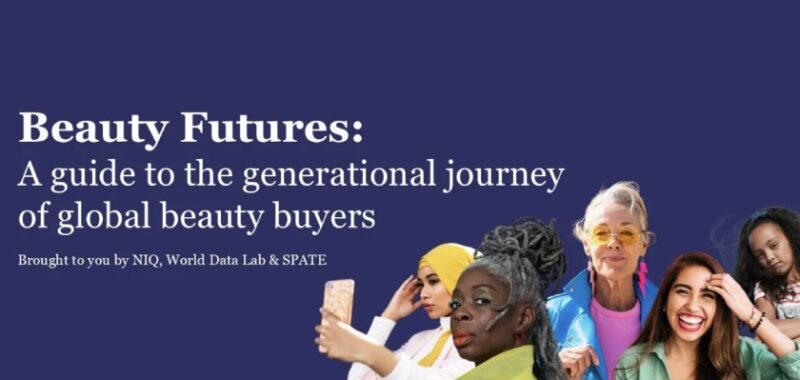The “Beauty Futures” report reveals key insights into generational preferences, spending habits, values, priorities, motivators, shopping behaviors, and their influence on global beauty trends.
Claire Marty, Vice President, NIQ Beauty, said,
“At NIQ, we recognize that understanding generational differences is key to navigating the evolving beauty industry. This is an opportunity for companies to move beyond “one size fits all” approach and tailor their strategies for each generation. Our consumer trends and sales data will help beauty brands uncover unmet needs, understand consumer values, and navigate the retail landscape.”
Gen X
The report found that Gen X (born between 1965 and 1980) are the biggest beauty spenders. This is the most valuable generation to beauty spending from 2024 until 2034, with spending growing by $150 billion in the next 10 years.
While Gen X is engaged across beauty categories, skincare is expected to see the fastest growth in the next 10 years due to Gen X engagement.
The report found that Gen X prefers convenience and is most likely to shop at all-in-one stores such as Amazon and Hypermarkets.
Wolfgang Fengler, CEO of World Data Lab, said,
“We project that for the first time ever the global beauty sector is now exceeding US$ 1 trillion, which is a testimony to consumers of all ages and all countries’ desire to use cosmetics and beauty services.”
Millennials
According to the report, Millennials (born between 1977 and 1995) will be leading global beauty market growth in the next 10 years and will surpass Gen X as the dominant force in beauty spending in 2034, representing 24% of global spending.
Millennial spending growth on skin and hair care in 2024 outpaces the total market in the U.S. and the rest of the world.
Spending on beauty services by Millennials will grow the most by 2034, the report predicts.
Europe is leading this trend, with 57% of millennials in Europe spending their beauty budgets on beauty services, and 6% on makeup. In comparison to North America, makeup represents 11% of spending.
Over half of millennials (56%) think about their looks most of the time and are most likely to use natural ingredients or food products as substitutes in their beauty routine.
Read Next
Euromonitor Says the ‘K-Wave’ is Growing
New Report Shows the Continued Popularity in K-Beauty
Nearly 60% of Gen Z and Millennials Only Buy Eco-Friendly Brands

